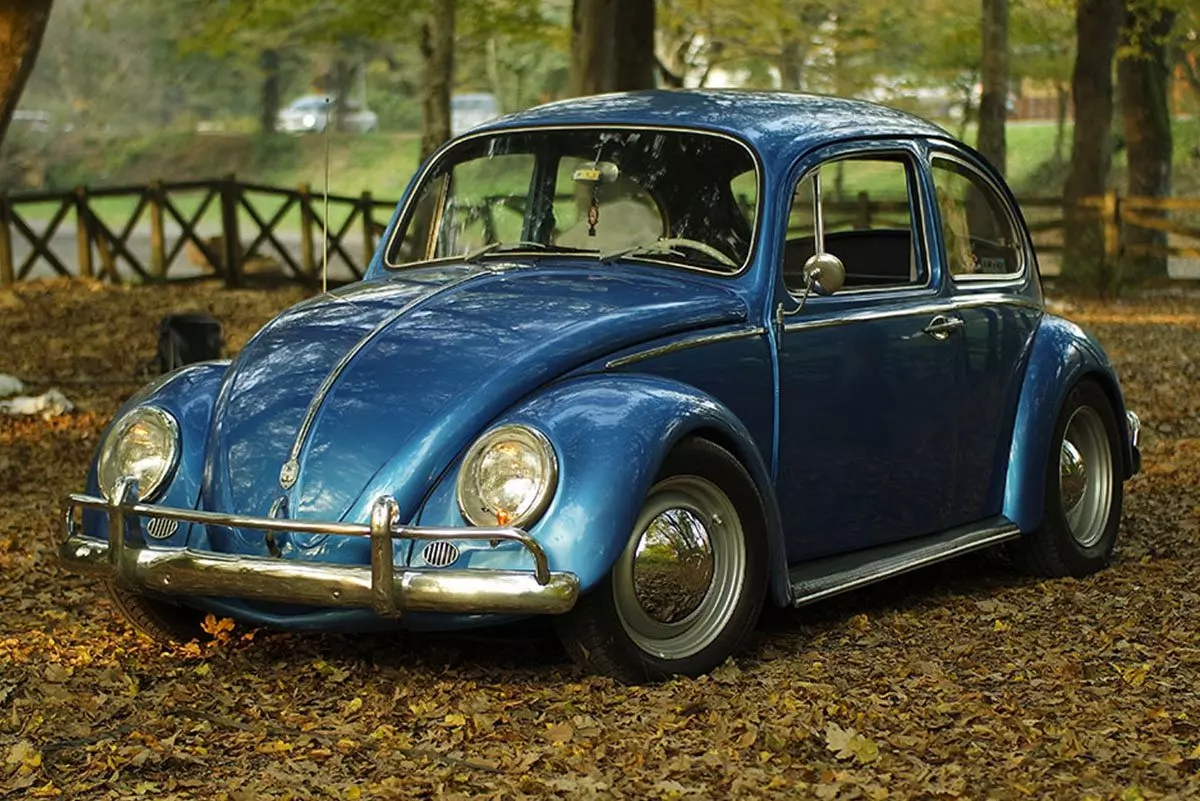Are you thinking of buying a vintage car? What's the best classic car to invest in? We look at some of the best classic cars to buy and what to look out for
Best Classic Cars to Invest in Right Now
Collectable or investment cars cover a wide range of vehicles, from modern exotic sports cars to one-of-a-kind collectable vehicles, costing from only a few grand to hundreds of pounds. Most define a 'Classic Car' as a vehicle aged 25 years or older, although the definition can vary, with some recent cars considered 'modern classics'.
Classic cars are distinguished by their collectable status, with a person desiring to restore the car rather than get it scraped, often using them as sound investment cars. The classic car range can be categorised further, with Antique Cars manufactured before 1980 and Vintage Cars manufactured pre-World War II.

Over recent years, the classic car market has seen a resurgence in popularity, with more people and car enthusiasts eager to own a car of historical significance. Along with the chance of owning a one-of-a-kind solid investment rather than a merely stock market investment.
Over the past decade, classic car investors were regarded as risk-takers, as new cars were produced continuously, and the demand for vintage or classic cars was much lower than today.
Today, the right classic car, if bought for an affordable price, can be a sound investment with great future value. As desirable classic cars become rarer and instantly recognisable, appreciation values rise.
Another benefit of owning desirable cars, like a classic car or modern classic, is the exciting aspect of owning a true piece of history, whilst knowing it's likely to continue gaining value.
Rather than having investments hidden in bank accounts, making barely noticeable returns, you can have car investments sitting in your driveway in the form of a stylish classic or obnoxiously retro model. The maintenance costs for minimally driven early cars aren't overly-expensive and are worth it compared to some appreciation rates.
WHAT IS THE FIRST THING TO CHECK WHEN BUYING A CLASSIC CAR
Another motivation to pursue classic car investments comes from stories about cheap barn finds becoming goldmines after classic cars were left to gather dust by previous owners.
Often oblivious to the future classic money makers in their possession, sometimes for over the past decade, these classic cars are found and sold for huge profits. Most 'barn finds' valued in the six or seven figures have unfortunately already been found, restored and sold or kept.
However, numerous vintage car models are experiencing steadily increasing values with each passing year and could prove a worthy investment if bought for low prices.
This article breaks down some of the most fun and best cars, from classic cars to vintage cars, to modern classics and future classics, we offer the best tips to select the best investment cars.
Classic Car Concerns
Purchasing a classic car can be a sound investment, especially in today's market as more people become enchanted by classic cars' rarity, their stylish designs and the ability to say you have a unique collectable in a time of over-production and mass consumption. A few downsides you should be aware of before entering the classic car world are discussed below- to save you time and money.
Firstly, it may seem unlikely, but many cars can sometimes be mistaken for another model, from another year, or a different trim level. The trim level defines the various versions of one model, with each holding providing different levels of value as an investment.
Before purchasing a vintage car or classic car for investment or personal ownership, you must ensure the seller has stated the absolute true condition and parts of the car, as misinterpretations can be value-mitigating. Check a range of parts, including the engine, chassis, lights, steering wheel and more, to confirm the classic car is as authentic as stated.
Mechanical problems are another issue with most cars, even more so in older classic cars, especially those left without proper maintenance for a long time. Similarly, rust can become a major issue for the vast majority of collectable classic cars if the model isn't stored in a temperature and humidity-controlled room. Unlike many other collectable items, investment-grade cars demand additional care and expenses so that they maintain their high value and cannot be left to just sit, without an expected decrease in value.

The more exotic and rarer the classic car, the greater the repair or maintenance costs, as these unique models often require specially trained, professional mechanics. Both the interior space and exterior body will need a professional mechanic.
Moreover, locating and purchasing original replacement parts can take a long time and cost more. Certain classics may not even have parts produced anymore, and they may need to be specially crafted. A lot of classic car owners will fit a new engine into the older chassis to improve reliability and increase power.
If you plan to insert a new engine, ensure the modern engine is compatible with existing components, for example, the transmission.
A more obvious concern would be the risk. As with most investments, there is no absolute guarantee you will make a profit from a classic car, although educated predictions and knowledge of the collectable car industry can help provide security in your investment choice. Furthermore, the insurance for classic cars is generally much greater than that of a normal car.
Often only specialist insurance companies will cover the more expensive classics and certain models that are considered rarer. Some key factors that influence the cost of insurance for a classic car include overall condition, usage, mileage, proof of a second primary vehicle and how the car was stored, amongst other aspects.
Storing a classic car correctly over extended periods ensures it's kept in good condition and retains value, providing great investments. You should find a secure facility or garage to store the investment car in, assuming your personal garage is inadequate, although storage can cost a lot depending on location, type of car and length of storage period.
Lastly, remember that purchasing a classic car, or modern classic, is a long-term investment opportunity, not short-term like car flipping. Generally, for a classic car to begin appreciating, it'll have to be stored for several years, or sometimes decades. Being patient can prove worth it, with some classic cars jumping exponentially in value after a critical cultural event. Ultimately, if you manage to sell your classic car for a nice profit, don't forget you'll have to pay pesky Capital Gains Tax.
SOME OF THE BEST CLASSIC CARS TO BUY
Below we break down some of the best classic cars to buy. Whether you want to enjoy them on the roads now or tuck them away as a good investment for the future, there are plenty of classic cars and modern classics to choose from.
PORSCHE 968 (1991-1995)
The Porsche 968 is a collectable sports car manufactured during the late '90s, with its origins from the early Porsche 924 (1976–1988).
The 968 was considered the pinnacle model for Porsche's endeavours into front engine and rear drive cars.
Previous models like the 928, 944 and 924 have gained value each year, with the Porsche 968 set to follow suit, presenting this as a great choice for a new classic car investment and for a stylish car to drive.
PORSCHE 997 (2005-2012)
Arguably the Porsche 911 is one of the most notable sports cars to ever be produced, with its prices continuing to rise since it was first released in 2005.
Rarer Porsche 997 models, like the 997 GT3 RS 4.0, can fetch up to £415,000. Whilst the less rare models retain a relatively low entry point of £25,000. The early non-S 997 models present the best offers, whilst the most in-demand are the facelifted GTS models.
MAZDA MX-5 NC (2005-2015)
Considered one of the best-road driving cars produced, and one of the best-selling road cruisers of all time, the Mazda MX-5 NC cars continue to give joy to its owners. Reasonably priced, this agile modern classic offers accurate steering with soft and hard top options available.
The MX-5 is a third-generation model from the NC series, yet to be as desirable as its older models, however, it's predicted to begin its appreciation period. So the Mazda MX-5 NC could prove to be one of the best investment cars to pick today!
HONDA CIVIC TYPE R (EP3) (2001-2005)
For decades Honda dominated the production of high-performance hot hatchbacks, its zenith model being the Civic Type R (EP3).
To access the full potential of the modern classic, the hatchback needs to be revved, unlike modern cars that offer straightforward torque. But for many owners, the experience and mechanical sounds are unbeatable by modern conveniences, the real issue comes when attempting to find a Civic Type R (EP3) that's not been heavily used, modified or almost entirely destroyed.
LOTUS ELISE – SERIES 1 AND 2 (1996-2011)
First launched in 1996, the Lotus Elise was designed under Colin Chapman's philosophy to 'add lightness' to sports car models, giving them immense speed and agility.
The Series 1 Elise weighs a mere 725kg, sporting a fibre-glass chassis to provide 0-60mph in 5.8 seconds, despite a power output of only 188bhp. The Series 2 weighs slightly more (860 kg) owed to the modified Series 1 chassis used, to ensure the car met new regulations. Both Lotus Elise series offer an unforgettable driving experience.
RENAULT SPORT CLIO 197/200 (2005-2012)
The Renault sport Clio 197 and 200 are descendants of the original Clio RS first released in 1998, using the same 2.0-litre Renault F4R engine until the last 2012 model.
These popular sporty hot hatches were regarded highly amongst car enthusiasts and auto magazine companies, receiving various accolades when first released. The 197 and 200 have minimal differences, so instead, find a model that's offered in good condition.
BMW M3 E46 CSL (2000-2006)
The BMW M3 E46 CSL is considered the best M-model by many car enthusiasts owing to its appeal, design and simplicity.
This pinnacle BMW M-model was produced in limited quantities, with 1,400 cars released on the European market. Nowadays, this specific model can fetch around £100,000, so it's not ideal for smaller budgets.
FORD MONDEO ST220 (1992-1999)
This modern classic is the perfect mix of power, comfort and good handling, presenting a great choice for anybody with an everyday need for speed. In 1994, the Ford Mondeo ST220 won the European Car of the Year Award and still remains a popular choice today.
The Ford Mondeo ST220 offers top speeds of up to 155mph and reaches 0-60mph in 6.8 seconds, whilst remaining reasonably priced. Many consider the Ford Mondeo ST220 to be an unsung modern classic.
ASTON MARTIN DB7 (1994-2004)
Aston Martin cars are known to make great investment cars, as, throughout the luxury brand's history, it's produced a minimal variety of each model and had limited models on sale at one time. For instance, at the current time, Aston Martin only has five modern car models to choose between, making each seem rarer in the future.
Furthermore, Aston Martin's are still mostly built by hand, making them unique compared to mechanically produced classic cars. You'll likely see a drop in values before the model reaches the desirable 'classic car status', as currently seen with The Aston Martin DB7.
AUDI TT – MK1 (1998-2006)
First launched in 1998, the world-renowned Audi TT seemingly resembled an escaped concept car, with its revolutionary design and modern elements.
Sharing its gear with the Volkswagen group, the TT is reliable and quick. And with relatively no difference between the 247bhp 3.2-litre V6 engine and 1.8-litre turbo models, you can grab either TT for a great price.
If you want to find out more about sports car servicing and repair within Maidstone and Kent, then get in touch today.

